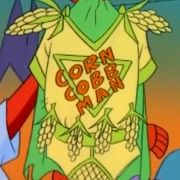|
I thought the point of 10% Ethanol was to replace MTBE as an octane booster as MTBE was contaminating ground water.
|
|
|
|

|
| # ? May 17, 2024 01:04 |
|
Thank yoy guys for the informative posts. Looks like my belief on ethanol was derived from debunked positives.
|
|
|
|
Note that corn biofuel being bad doesn't necessarily mean that all biofuels are bad also this may be a hole we don't wanna go down, but "provide food to poor countries as cheaply as possible" turns out not to be a great thing to do either. When foreign, imported food is cheaper than locally-grown food, those countries' farmers find themselves out of work, which exacerbates the problems of insufficient domestic food production and poverty. Food aid to countries undergoing famine and starvation or food disruption due to natural disaster or war is totally cool and good, but just subsidizing our corn crop and then outcompeting poor countries' own food production on the international markets is bad and a form of economic imperialism. Transportation of food also adds to the carbon footprint. It is better to eat what is grown locally, and that's true everywhere else, not just here. A lot of the land we grow corn on could be growing a broader variety of food, perhaps replacing some of the food that we currently import? A lot depends on climate and soil and so forth so that's not as simple as it sounds, but I think we could be doing better. Also vast monoculture is probably really super bad for ecosystems and the environment, especially monoculture that relies very heavily on herbicides, pesticides, and fertilizer. Corn is also not the culturally-normal staple food in most of the world, so sending poor countries our corn has the effect of altering local food culture. That seems bad? Also corn is just not very healthy. You can totally live on it but it's really sugary. If we had to export food all over the world, it'd be better to export like rice or maybe wheat? basically gently caress corn subsidies is what I'm saying
|
|
|
|
Leperflesh posted:basically gently caress corn subsidies is what I'm saying 
|
|
|
|
Leperflesh posted:Transportation of food also adds to the carbon footprint. It is better to eat what is grown locally, and that's true everywhere else, not just here. quote:Despite significant recent public concern and media attention to the environmental impacts of food, few studies in the United States have systematically compared the life-cycle greenhouse gas (GHG) emissions associated with food production against long-distance distribution, aka “food-miles.” We find that although food is transported long distances in general (1640 km delivery and 6760 km life-cycle supply chain on average) the GHG emissions associated with food are dominated by the production phase, contributing 83% of the average U.S. household’s 8.1 t CO2e/yr footprint for food consumption. Transportation as a whole represents only 11% of life-cycle GHG emissions, and final delivery from producer to retail contributes only 4%. Different food groups exhibit a large range in GHG-intensity; on average, red meat is around 150% more GHG-intensive than chicken or fish. Thus, we suggest that dietary shift can be a more effective means of lowering an average household’s food-related climate footprint than “buying local.” Shifting less than one day per week’s worth of calories from red meat and dairy products to chicken, fish, eggs, or a vegetable-based diet achieves more GHG reduction than buying all locally sourced food.
|
|
|
|
biofuels making food more expensive have sent a lot of people into starvation or killed them, the reason it is a thing is because the farmers get more money selling it as for biofuel than as for food
|
|
|
|
Leperflesh posted:basically gently caress corn subsidies is what I'm saying Also most of the corn we grow isn't even even usable as food it's just for stupid poo poo like ethanol or corn syrup production.
|
|
|
|
The real answer is for people to stop driving, but that's not a realistic answer in the forseeable future so the real, realistic answer would be something along the lines of a Green New Deal that gets as many fuel burning vehicles off the road as possible and replaces them with EV's, while simultaneously phasing out dirty forms of energy generation like coal and natural gas and replacing them with solar/wind/hydro/nuclear so that you're not just offsetting the pollution from cars to more coal plants.
|
|
|
|
Jaxyon posted:Also most of the corn we grow isn't even even usable as food it's just for stupid poo poo like ethanol or corn syrup production.
|
|
|
|
Cicero posted:Isn't the climate impact of transportation of food exaggerated? Well, that's a study of carbon footprints of food in the US, so it's not about corn exports to poor countries, but yeah a much bigger carbon footprint is just eating cows. It's still a footprint though. It doesn't cost me much to buy what's in-season at my local grocery, although since I live in California we have a super long in-season period and it's obviously a lot harder to do that if you live in like minnesota or something. But that's an interesting study anyway, thanks.
|
|
|
|
Leperflesh posted:Also corn is just not very healthy. You can totally live on it but it's really sugary. If we had to export food all over the world, it'd be better to export like rice or maybe wheat? Why is corn unhealthy? I don’t get why it would be an unhealthy food. Nutritionally it looks pretty similar to rice. Why are people saying that corn is an inefficient crop? I get that it gets used for maybe inefficient purposes (animal feed, biofuel). I suspect that it is probably one of the most efficient crops to grow, although probably not as efficient as rice.
|
|
|
|
silence_kit posted:Why is corn unhealthy? I don’t get why it would be an unhealthy food. Nutritionally it looks pretty similar to rice. 6.26g sugar in 100g of corn vs 0.05g sugar in 100g of rice for comparison: https://foodstruct.com/compare/maize-vs-rice
|
|
|
|
silence_kit posted:Why is corn unhealthy? I don’t get why it would be an unhealthy food. Nutritionally it looks pretty similar to rice. Having worked with corn, it uses a fuckload of nutrient inputs that then contaminate water and lead to blooms etc etc. It's very fertilizer intensive and scorches soils. And yeah on top of that, the reasons we grow so much corn, like animal feed, suck rear end
|
|
|
|
Leperflesh posted:Well, that's a study of carbon footprints of food in the US, so it's not about corn exports to poor countries, but yeah a much bigger carbon footprint is just eating cows. It's still a footprint though. It doesn't cost me much to buy what's in-season at my local grocery, although since I live in California we have a super long in-season period and it's obviously a lot harder to do that if you live in like minnesota or something. Living in California definitely spoils you in terms of ability to find locally grown produce of all kinds at prices that won't murder you, throughout the bulk of the year.
|
|
|
|
Sydin posted:Living in California definitely spoils you in terms of ability to find locally grown produce of all kinds at prices that won't murder you, throughout the bulk of the year. I never could understand the craziness about avocados being something expensive until I travelled somewhere that doesn't have avocados for like 1.50 each for large ones. 3 bucks for a small avocado wtf
|
|
|
|
Some booth at my local farmers market sells these cara cara oranges and it's loving ridiculous how good they are. Compared to the citrus available in the Midwest it's not the same plant. What the gently caress was I eating back there
|
|
|
|
|
The North Tower posted:6.26g sugar in 100g of corn vs 0.05g sugar in 100g of rice for comparison: https://foodstruct.com/compare/maize-vs-rice Hmm ok. Cornmeal and masa harina only contain a few grams per 100g. In any case, a few grams of sugar per serving doesn't make something unhealthy. slicing up eyeballs posted:Having worked with corn, it uses a fuckload of nutrient inputs that then contaminate water and lead to blooms etc etc. It's very fertilizer intensive and scorches soils. Am I misinterpreting this table from a report from the United Nations Food and Agriculture Organization? If you take Table 14 on page 61 here, and divide the fertilizer rate by the yield, you get a quantity (kg fertilizer)/(kg crop), which I will give the awkward name, slightly a misnomer, 'inverse fertilizer mass efficiency'. By this figure of merit, in North America, corn is more efficient with fertilizer than wheat, and less efficient than rice. Maybe corn tends to use up a lot of the nutrients in soil because it tends to be a high yielding crop? silence_kit fucked around with this message at 03:04 on Oct 4, 2019 |
|
|
|
silence_kit posted:Hmm ok. Cornmeal and masa harina only contain a few grams per 100g. In any case, a few grams of sugar per serving doesn't make something unhealthy. OK apparently I was looking at the sugar content of "sweet corn" which is not the same as "yellow corn" and yeah it's still a vegetable, it's got dietary fiber, various vitamins, and whole fresh steamed corn is in the "low" range on the glycemic index which means most diabetics can still eat it. But I'd argue that rice or maybe wheat are still healthier on balance. Rice has the issue that it's a water-intensive crop so it's not something you can just grow anywhere. And since we're talking about export, we're probably not talking about fresh whole ears of corn: cornmeal, as you said, is probably fine too. Ideally we'd send to countries, staples that are familiar and common to the locals, and do so when they need food aid, not as a matter of cheaper exports that compete with their own farmers. But I should have looked poo poo up before talking about how corn is unhealthy. I did some more reading. Apparently a huge proportion of corn that we grow in the US is "field corn" which is not for serving on your table: it's used to manufacture animal feed, high fructose corn syrup, dextrose, glucose, etc. And we mostly grow it because of subsidies that make it super cheap to grow, not because it's a superior crop. (If it were a superior crop, the subsidies would be unnecessary...) But feel free to chow down on some delicious table corn.
|
|
|
|
Leperflesh posted:And we mostly grow it because of subsidies that make it super cheap to grow, not because it's a superior crop. (If it were a superior crop, the subsidies would be unnecessary...) Is this really true? Almost all agriculture in the US is subsidized to some degree, I think. I suspect that corn is probably a pretty efficient crop to grow. What would be greatly more efficient than corn? edit: I understand that corn ethanol for fuel is not economical (oil is cheap and obviously an incredible fuel) and that vegetarianism is more efficient than eating meat. But there are other products you can make from crops--why is corn such a bad choice for those products? silence_kit fucked around with this message at 04:32 on Oct 4, 2019 |
|
|
|
Field corn is great because most people don't know what it is and that it's disgusting. You always get a few people from "the city" who drive buy corn fields and help themselves to it. Poor bastards. That said the nutritional profile of corn isn't something to write home about. Nutrients in general have probably been over emphasised in recent history. It's why taking vitamins does gently caress all. Shoveling Staples down your throat and not much else isn't a way to live. If we weren't looking for meat feed we could do a lot more with our acreage.
|
|
|
|
|
Goodpancakes posted:Some booth at my local farmers market sells these cara cara oranges and it's loving ridiculous how good they are. Compared to the citrus available in the Midwest it's not the same plant. What the gently caress was I eating back there the satsuma mandarins will be back soon.... mmmmm
|
|
|
|
Yeah I didn't want to get into sweet vs field/dent corn but that's a bigger part of it for me - the corn we grow for actual consumption is a small proportion of the total corn we grow, and that sucks rear end
|
|
|
|
Leperflesh posted:Corn is also not the culturally-normal staple food in most of the world, so sending poor countries our corn has the effect of altering local food culture. That seems bad? Nonsense. We bless countries with our joyous corn and it coexists well with the local food culture! Kyrgyzstan is an endless sea of steamed corn stands adjacent the stands selling strange ancient fermented dairy products. 
|
|
|
|
silence_kit posted:Why is corn unhealthy? I don’t get why it would be an unhealthy food. Nutritionally it looks pretty similar to rice. A mostly-corn diet (which a lot of people in the South and in Italy had) is a great way to get pellegra. A mostly-wheat diet doesn't give you deficiency diseases. Also, listen to all the people with agricultural knowledge here who are explaining that corn is not an efficient plant. e: A friend of mine said it, and I later found it to be true. Once you've had produce actually fresh, within a matter of days, from the field, nothing else will satisfy. Note: many frozen foods meet this qualification.
|
|
|
|
CMYK BLYAT! posted:Nonsense. We bless countries with our joyous corn and it coexists well with the local food culture! Kyrgyzstan is an endless sea of steamed corn stands adjacent the stands selling strange ancient fermented dairy products. Haha this pic rules Actual history surrounding the pic notwithstanding, thread posters are going to reverse their anti-corn opinions now that it has been made known in the thread that corn is not just the low class food of the Southern and Midwestern US, but was a major USSR government program lol
|
|
|
|
you avoid pellagra by soaking the corn in water with ashes and/or calcium carbonate multiple american cultures lived off corn just fine, not including ours of course
|
|
|
|
Sort of! There's massive and notable declines in the health of populations that made the transition from hunting/foraging to agriculture. This plays out in archaeology when you investigate skeletal remains. They did fine in that not everybody died (though sometimes they did via monoculture collapse). Today something ridiculous like 60% of typical calorie intake comes from wheat, rice, and corn.
|
|
|
|
|
Doc Hawkins posted:you avoid pellagra by soaking the corn in water with ashes and/or calcium carbonate interestingly when farmers in the USA processed their own corn, pellagra was not a significant problem. This is because the soaking with ashes thing, aka nixtamalization, helps make grinding and processing easier. However as large scale industrial mills began taking over processing in the late 19th century, they had enough power to simply skip this step and didn't have a sufficient grasp of nutrition to understand the consequences, with the result being a major epidemic of pellegra which was only really brought under control in the nineteen-thirties. Unfortunately nixtamalization as a custom didn't really get brought back to the old world, which has resulted in pellagra being a major problem in places where corn became an important subsistence crop. The primary difference between American grits and Italian polenta is that grits are made with corn that has been nixtamalized. Generally though farmers around the world are pretty good at finding and growing the most productive crop where they live, especially when it comes to producing stuff like animal feed and ethanol where custom is less important, and anybody who is going to try and second guess this is going to end up looking silly. Wheat has always been a more prestigious grain in the United States than corn, a result of the enduring legacy of the food traditions of European colonists. The reason corn is the largest crop in the USA is because it is the most productive in American conditions. Ultimately making nutritional comparisons between single crops is essentially pointless. You have to consider the entire food system.
|
|
|
|
Cornbread was originally made by ashing corn.
|
|
|
|
Corn tortillas taste great.
|
|
|
|
Doc Hawkins posted:multiple american cultures lived off corn just fine, not including ours of course Ancient maize was not the giant ears of yellow and white corn we're familiar with today. In fact humans began a process of domesticating it (from a plant called teosinte) like 8 or 10 thousand years ago, gradually turning it into a crop that could, along with other foods (the maize/squash/beans combo is commonly referred to as the three sisters, and other crops include potatoes, quinoa, and amaranth) provide a subsistence-level semi-agricultural lifestyle. As far as I know, no ancient american cultures lived off just corn. No ancient cultures lived off any one single food source. The potential for a single year's crop failure to wipe you out completely is too high. Certainly maize was so spectacularly important to some north, central, and south american cultures that they practically revered it, but even for them, daily and annual nutrition was based on a variety of seasonally-available and/or cultivated foods. All that said: those american cultures were using nixtamalization, making niacin available and preventing them from suffering the niacin deficiencies that showed up when 19th and early 20th century poor people were reduced to trying to survive on mostly or entirely corn, a situation brought on by the distribution of corn as a wonder-crop to places where there was no cultural tradition of processing methods that made it safe as a staple.
|
|
|
|
Leperflesh posted:
true, and i did glibly imply that. no modern cultures do it either. people enjoy eating as many different things as they can! but i am pretty sure the primary calorie source of precolumbian cities was maize.
|
|
|
|
Doc Hawkins posted:true, and i did glibly imply that. no modern cultures do it either. people enjoy eating as many different things as they can! but i am pretty sure the primary calorie source of precolumbian cities was maize. Clearly you haven’t heard of the techbro consumption of this new wonder called Soylent
|
|
|
|
Squalid posted:(really cool stuff snipped) How was it controlled? By requiring mills to nixtamalize or fortify grits?
|
|
|
|
Arsenic Lupin posted:How was it controlled? By requiring mills to nixtamalize or fortify grits? Fortification was a big part. They only really began to understand the science of micro-nutrition in the thirties, and that is when they first started fortifying flour. But there's also a bunch of other changes that simultaneously began to improve diets at this time, including the beginning of social security, agricultural subsidies, and urbanization. If today US agricultural policy seems overly obsessed with producing ever more and cheaper calories, it makes more sense when you remember it all started at a time when bad diets were a major killer not just in old age, but also child and adulthood. Some of the other epidemic diseases caused by poor nutrition are beriberi (thiamine deficiency) which commonly hit people with rice based diets, and vitamin a deficiency, which again effects people dependent on rice but also a lot of people in places like Africa with diets based things like plantain or taro.
|
|
|
|
Doc Hawkins posted:true, and i did glibly imply that. no modern cultures do it either. people enjoy eating as many different things as they can! but i am pretty sure the primary calorie source of precolumbian cities was maize. Sure. "Primary calorie source" is a sneaky thing to say, though. It's true, if you don't get enough calories, you starve... but once you're not starving, nutrition involves a lot more than just calories. Anyway we got pretty far afield. The point of all this is, gently caress corn subsidies.
|
|
|
|
The North Tower posted:6.26g sugar in 100g of corn vs 0.05g sugar in 100g of rice for comparison: https://foodstruct.com/compare/maize-vs-rice The Glycemic index of rice varies widely based on variety. Jasmine Rice: as high as 80 Brown Rice: 55 Basamati Rice: 52 I know this because I'm on a "vegan low glycemic" diet and this stuff matters.
|
|
|
|
Squalid posted:Fortification was a big part. They only really began to understand the science of micro-nutrition in the thirties, and that is when they first started fortifying flour. But there's also a bunch of other changes that simultaneously began to improve diets at this time, including the beginning of social security, agricultural subsidies, and urbanization. If today US agricultural policy seems overly obsessed with producing ever more and cheaper calories, it makes more sense when you remember it all started at a time when bad diets were a major killer not just in old age, but also child and adulthood. Vitamin D deficiency was also a problem for dark skinned people living in more northerly climates prior to widespread fortification. Rickets used to be tragically common. Vitamin fortification is one of the most overlooked success stories of public health in the 20th century. It's probably saved as many lives as vaccination or water treatment.
|
|
|
|
Shout out to that southern California gamer/streamer who got rickets. How the gently caress do you get rickets in SoCal.
|
|
|
|
|

|
| # ? May 17, 2024 01:04 |
|
So what’s this thread’s take on Urban Growth Boundaries? They have been really popular in the North Bay, presumably under the “limit sprawl” line, as if these suburbs will see higher density and developers will more efficiently use their land. But the usual effect is that the Slow Growth movement becomes a No Growth movement, the thing often can’t be amended without voter approval or until it sunsets in decades, etc. Wouldn’t vote for them myself, because they’re often used to create “green lines” of undeveloped fields between cities that are difficult to traverse without an automobile.
|
|
|




































